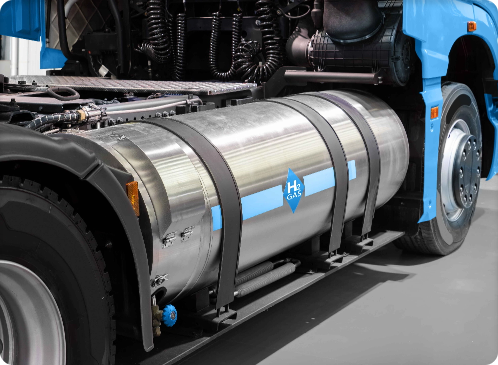Our climate strategy is a central focus, as we recognize the urgency of addressing climate change. At Adani Enterprises Limited, we are steadfast in our commitment to reducing carbon emissions throughout our operations and product life cycles. We recognize the importance of reducing our carbon footprint across the geographies in which we operate, in harmony with national goals. Our carbon reduction targets are intricately aligned with India’s national objective of achieving net-zero emissions by 2070, in accordance with the global ambitions outlined in the Paris Agreement to limit global warming to well below 2 degree celsius and pursue efforts to achieve a 1.5 degree celsius target.
Aligned with this commitment, we have endorsed the recommendations put forth by the Task Force on Climate related Financial Disclosures (TCFD). Our focus extends beyond our production processes, encompassing supply chains, internal governance, disclosures, and policy advocacy to facilitate a seamless transition towards a lower carbon future.

Our Approach to Decarbonization
Our decarbonisation efforts extend beyond individual projects, as we continuously explore innovative technologies, engage with stakeholders, and collaborate with industry peers to advance the decarbonisation agenda. Through concerted efforts, we strive to shape a sustainable future, minimizing our environmental impact, and driving the transition to a low-carbon economy. We embrace the challenge of decarbonisation as an opportunity for growth and progress. With a commitment to sustainable practices, we envision a future where Net Zero is not just a goal but a reality.
Adani Data Center
Operational Net Zero by 2030
Adani Airports
Operational Net Zero by 2030
As a responsible corporate citizen, we embrace a holistic decarbonisation approach, exploring cross-cutting opportunities to drive positive change:
Energy Efficiency
Energy efficiency not only offers substantial potential for cost reduction in our operations but also stands as one of the four primary levers for our decarbonisation pathway, highlighting its crucial role in advancing our sustainability goals. We decreased our energy intensity (per rupee of turnover) by 26% compared to the FY 2021-22. As part of our commitment to sustainability, we have replaced traditional fluorescent, halogen, and metal halide lamps with energy-efficient LED lamps.
Energy Mix
The percentage of Renewable Energy in the overall energy mix has experienced remarkable growth. In FY 2022-23, the share of Renewable Energy has risen to 13%, a significant increase from the 1% recorded in FY 2021-22. This noteworthy progress highlights AEL’s dedication to incorporating sustainable and clean energy sources into its operations, contributing positively to decarbonisation initiative.
Nature Based Climate Solutions
We recognize the significance of Nature Based Climate Solutions in our journey towards decarbonisation. We have significantly increased green cover across our businesses and thereby enhancing carbon sequestration and environmental sustainability. AEL businesses planted 13 lakh trees by 2022 against a target of 15.39 million trees by 2030
Development of Deep Decarbonization Technologies
By aligning with India’s vision for ‘Atmanirbhar Bharat’ (self-reliant India), our Adani Solar business is establishing a fully integrated solar module manufacturing facility of 10 GW per annum, spanning from poly silicon to cells and modules and commissioning a 1.5 GW per annum wind turbine manufacturing plant at Mundra SEZ.
Green Buildings
We are increasingly adopting the concept of Green Buildings which ensures better environmental performance on all the indicators. Our Chennai Data Center, Solar Manufacturing at Mundra and Mumbai’s T2 are certified platinum rated Green Buildings and we are planning to have green buildings at our new airport sites

Airport ACA Level 4+
Mumbai Airport recently achieved the prestigious Airport Carbon Accreditation (ACA) Level 4+ certification, a distinction shared by only three airports in Asia..

Developing Hydrogen Fuel Cell Truck for Mining Logistics and Transportation
As part of our commitment to decarbonization....

Conversion of Airport-owned Fossil Fuel Vehicles to Electric Vehicles
As part of our commitment to achieving Net ...
